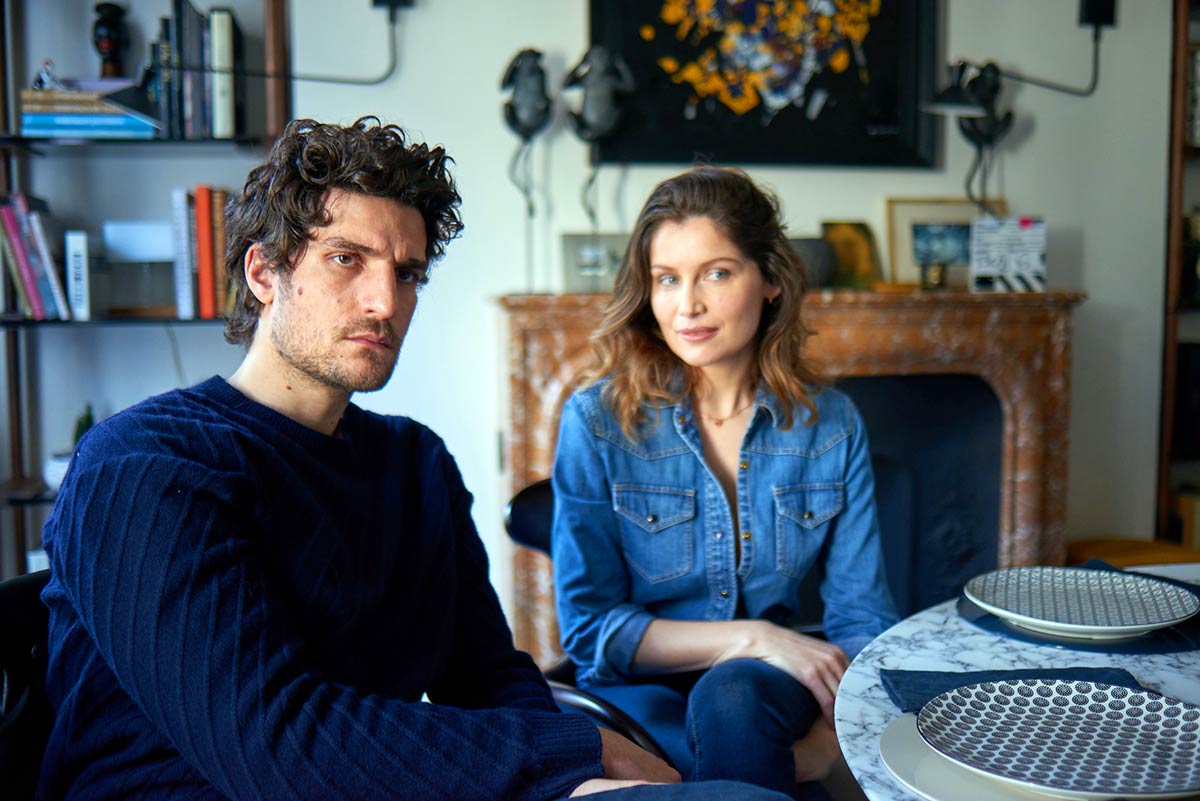When teenaged environmental activist Greta Thunberg made her now-famous speech at the UN Headquarters in 2019, she was met with equal parts admiration and derision, likely an unfavorable imbalance toward the latter. For every A-list celebrity who reposted a clip on their Instagram story, adorned with enthusiastic heart emojis, surely another handful of Internet trolls lurked in the comments and left discouraging messages. After all, the online world is an inhospitable place for climate activists, and even more so when they come in the form of determined, ambitious teenagers.
READ MORE: Cannes Film Festival 2021 Preview: 25 Films To Watch
That knee-jerk skepticism in response to youth-led activism is what Louis Garrel clearly hopes to target in his film “The Crusade” (“La croisade”), which screened as part of a special Cinema and the Climate program at the Cannes Film Festival. (The famous Thunberg speech itself is also featured, momentarily.) As far as feature-length films go, “The Crusade” is a brief one, clocking in at only 67 minutes, yet it feels fully actualized in story and form. Its messaging, too, about the admirable and often functional utility of youthful idealism resonates with the inner child in all of us, as well as shakes off a hard carapace of adult cynicism. It’s a shame, then, that Garrel and fellow writer Jean-Claude Carrière don’t take the opportunity to contemplate the colonialist subtexts of their characters’ titular crusade, addressing a symptom without giving much thought to systemic root causes.
The “crusade” in the film’s title is not an adult’s, but a child’s: When young Joseph (Joseph Engel) sells off his family’s heirlooms, from his mother’s Dior dress to his father’s cufflinks, his parents Abel (Louis Garrel) and Marianne (Laetitia Casta) naturally fly off the handle, rummaging frantically through their Paris apartment desperate to recover the remaining heirlooms, only to find that the most valuable among them have already been peddled by their entrepreneurial son. The road to hell is paved with good intentions, but Joseph’s are even more surprising than that, as he explains the true depth of the multinational, environmental mission he has signed on for with a team of his school friends. Together, they hope to assemble a global consortium of young activists—not merely in name but also in action, as they plan to pump an ocean into the middle of the African desert.
If this sounds preposterous, it does at first to Abel and Marianne, too, half-amused and half-concerned until they learn just how substantial this effort has already become. The children have taken the liberty of registering as an NGO, for instance, and communicated their group’s wishes to the higher-ups in the government. As Joseph drags them deeper into the heart of the project, Marianne begins to drink the Kool-Aid, even when her husband digs in his heels. “You had ideas, but they vanish over time,” she says, accusatory. And she’s right, as Joseph explains his rationale: Children are the ones who feel global problems most urgently because they’re the ones who will inherit the earth eventually (take Ms. Thunberg as exhibit A). How easy it is for adults to trivialize their concerns until it’s too late. Though Garrel knows his adult viewers will side with Abel initially, perhaps even approaching the last act, he wisely destabilizes allegiances, shifting audience sympathies to Marianne and Joseph. Perhaps Marianne is only acting in favor of protecting her son’s interests rather than her feelings of global citizenship, but it seems like a valiant mantle to take up all the same.
READ MORE: Summer 2021 Preview: Over 50 Movies To Watch
And yet, is it? As one person from the family makes the improbable trek to the Sahara to view the progress of the children’s mission, it’s impossible not to notice the film’s gaze, centering a white protagonist and relegating Africans to background players even in the midst of Africa. It’s a pleasant enough concept for the children to dream about pumping water into Africa, and admittedly steering a conversation toward the historical inequities borne by imperialism and perpetuated by climate change may not make for the most naturalistic dialogue. Yet, for a film that’s clearly advocating for climate change awareness and prevention, it’s bizarrely blind to the larger context of the issue and feels distinctly tone-deaf for the progressive climate change messaging Garrel is trying to achieve. Surely, some basic research would reveal that although the West has been responsible for the lion’s share of carbon dioxide emissions, the global South is the region that will continue to pay the price, economically and otherwise. The closing image—that of a European face atop a camel on a desert excursion in the Sahara, gazing serenely out at the African landscape—does not feel merely self-serving but also insufficient for the problem at hand. One can’t help but leave the theater thinking that “The Crusade” has solved a symptom rather than found a cure. [C]
Follow along with our full coverage from the 2021 Cannes Film Festival here.





